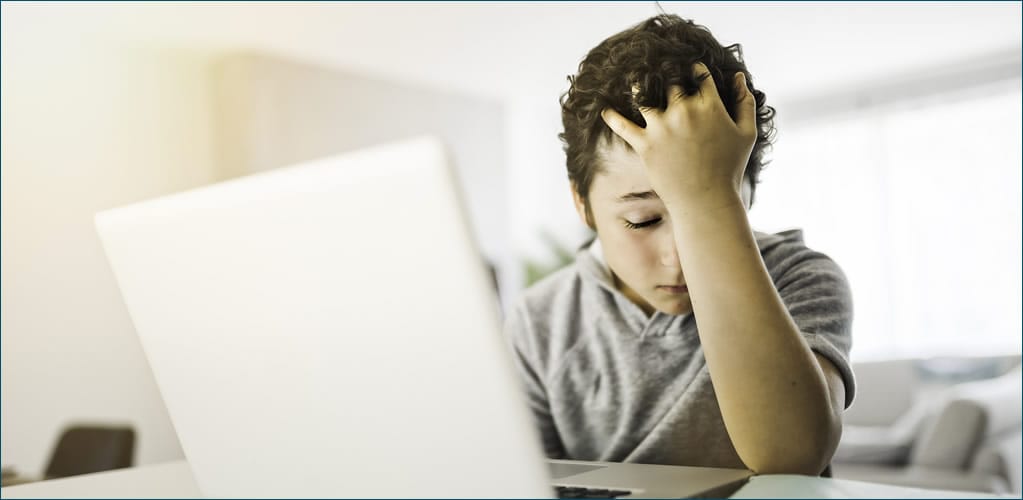Our forgotten children will suffer most from Covid being let rip – again.
Until a sufficient proportion of the population has been fully vaccinated, there are simple measures that would go a long way to assuring parents of their child’s safety in school.

Until a sufficient proportion of the population has been fully vaccinated, there are simple measures that would go a long way to assuring parents of their child’s safety in school.
First published in July 2021.
For clinically vulnerable children and parents, the implication of Covid being allowed to spread freely in schools is one of reckless endangerment to their health. They see this as abhorrent and unethical. Prior to the pandemic, society seemed to align with that perspective; but now that Joe Public is fed up with limitations on our social behaviour, families at risk are being told to suck it up.
“Freedom day? With no plan for the vulnerable who can’t be vaccinated, or the kids who could get long COVID... How’s that OK for our kids? I’ve kept my daughter who’s vulnerable home since February last year. What about her ‘freedom day?’ Yet, Sally down the road can’t wait for freedom day because she doesn’t have to wear a mask,” says T, a clinically vulnerable parent who cannot be vaccinated.
Following proposals to remove the requirement for close contacts within schools to isolate, parents have expressed concern about the impact SARS-CoV-2 infection would have on their children’s health, and about the government’s failure to stem rapidly rising case rates among school-aged children.
As schools and media outlets drum into us the trope that – medically – children are “rarely severely impacted” by Covid-19, parents are being coerced to ignore the evidence of their own eyes, and send their children to school regardless of scientific developments, a lack of mitigations, or the local infection rate.
1% of children who have contracted the disease have been hospitalised, and between 7% and 8% of children aged 2-16 continue to experience symptoms three months or more after being infected with Covid-19. Suffers can encounter symptoms so severe that they are unable to participate in their normal daily activities, and without any reassurance that they will ever recover. Campaign group Long Covid Kids have members who were infected at the beginning of the pandemic, and are still unwell now. Reports that coronavirus was in the top 10 causes of death in children in the United States last year are also unpalatably sobering.
The Covid risk incurred by some families has been intensified by clinical vulnerabilities of household members. Some individuals cannot be offered the vaccine for medical reasons, or are unable to mount an immune response to vaccination. In the case of children, even clinically extremely vulnerable under 16’s are not being vaccinated in the UK, despite ample safety evidence and numerous other nations vaccinating all children over the age of 12.
Immoral outcomes which flow from the failure to adequately mitigate the risk of transmission in schools, or to offer children vaccination against Covid-19 are inflamed by our draconian school attendance policy. The UK education system, with its woefully dubious “covid-safety” status, is now the setting for a bizarre, dystopian drama; the cast is drawn from every age group across our school communities, with those children habitually failed by society being most sharply affected.
I see we’re having highly praised conversations again about not needing to vaccinate kids without any mention that *checks notes* disabled children exist. Not at all weird or telling!
— Frances Ryan (@DrFrancesRyan) June 30, 2021
Children with special educational needs and disabilities (SEND) are some of the most affected, and this is by no means the first time their needs have been trampled. Even before the pandemic, the supposed prioritisation of their needs has been a continual and outright lie. Inequitable and inadequate social support structures – blessed with neither the political will nor the funding to fix them – have saddled the SEND community with a lifetime of isolation and ostracism from society.
“The pandemic has shown that inclusion does not exist in our schools,” writes Jeanette, whose daughter is 10 years old. They were pressurised to deregister or accept unsafe school attendance, despite medical advice to the contrary. “The toll this pandemic has taken on our mental health is immeasurable... We are the forgotten... Little value is placed on our vulnerable and disabled children.”
Jeanette’s daughter has an Educational Health Care Plan (EHCP); parents of children with special educational needs and disabilities often fight an arduous battle to obtain an EHCP for their child and to have it delivered, particularly during the pandemic. Children who attend special schools are more likely to have co-morbid health conditions alongside their additional learning needs, and it is unconscionable that families in this position are being coerced into “Elective” Home Education by the threat of Local Authority fines if the child is not returned to the setting.
Many children have their needs met beautifully within their home environment. But, among the estimated 20,000 children who have become home educated since the start of the pandemic, some are in that position only because their parents were forced to remove them from the school roll. These families have been subjected to off-rolling, an unlawful practice that results in the removal of a pupil from a school roll for reasons which principally benefit the school – in this case for their attendance figures. The needs of the children involved are not being best served by the stress and frustration their family is being subjected to.
The same tactics are applied to children without an EHCP, who may have a medical condition that is known to place them at increased risk. Examples of conditions that place the child at greater risk from Covid include asthma, auto-immune disorders for which the treatment is immune suppressants, and diabetes. Few parents would choose to weather a fine they can ill afford, and even fewer are in the position to chance an accompanying court conviction. The only practical choice open to them is deregistration under duress.
One parent, Andy, told us: “My wife and I received a shielding letter for our 4-year-old who has a genetic condition. Our 6-year-old daughter was in primary Year 2... The school said we had to take our daughter, so we deregistered her. We haven’t looked back... Zero doubt we did the right thing for our family.”
Losing the right to access your child’s education can be difficult and potentially disadvantageous for any family, whether in special or mainstream education. But when understandable safety is a consideration, there is no contest: to parents, nothing is more important than their children’s safety.
The new normal is under negotiation, and those who measure normality by pre-pandemic standards would have us believe that setting schools on fire with Covid is nothing to worry about. Rabidly, they insist that daily figures should be ignored, along with the likelihood that high levels of transmission will lead to the development of variants, which have a high chance of vaccine escape. Seemingly, access to culture, hospitality and holidays weigh more heavily on the minds of some than safety, or our children’s long-term health. This approach is unwise, given that 7.9 million households in the UK have dependant children.
My money is definitely not going to be spent in places that won't respect that I have an unvaccinated child in my household.
— Dr. Sherrill Stroschein 💙 (@sstroschein2) July 5, 2021
A return of consumer confidence and the stable delivery of our children’s education could be achieved by giving the option for children over 12 to be vaccinated, and under 12’s once the safety data become available. Until a sufficient proportion of the population has been fully vaccinated, there are simple measures that would go a long way to assuring parents of their child’s safety in school: the reintroduction of face coverings in secondary schools, and funding for air filtration equipment or ventilation improvements.
Importantly, preventing in-school transmission stands to prevent a glut of disability in the next generation of workers.

— AUTHORS —▫ Parents United, grassroots, parent-led campaign for a sensible, safe, and sustainable approach to UK Schools. |
GET THEM INVOLVED: |
Going Further:
- Long Covid Kids
- We are the forgotten: the pandemic has shown how little our vulnerable and disabled children are valued | Parents United
Sources
- Text: This piece was first published in PMP Magazine on 6 July 2021. | The authors write in a personal capacity.
- Cover: Stock Adobe/pololia.







[Read our Comments Guidelines]